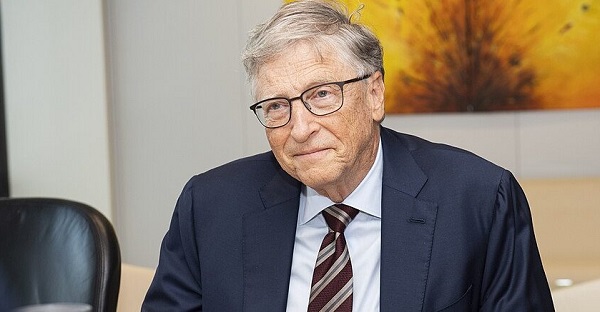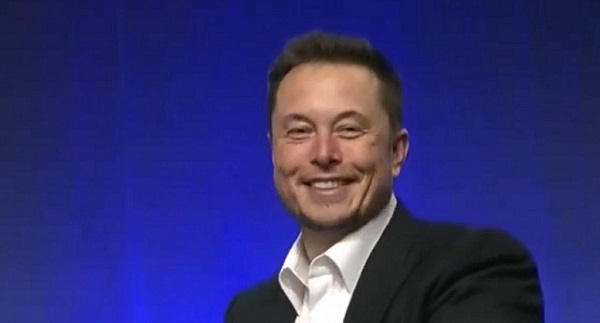Business
Apple suing British government to stop them from accessing use data

Quick Hit:
Apple is appealing a UK government order that could force it to create a ‘backdoor’ for authorities to access private user data. The move, pushed by Home Secretary Yvette Cooper, threatens the company’s end-to-end encryption protections. President Trump condemned the demand, comparing it to tactics used in China.
Key Details:
- Apple has lodged an appeal with the UK’s Investigatory Powers Tribunal, challenging an order that could weaken its Advanced Data Protection (ADP) encryption.
- The company previously disabled ADP in Britain rather than comply, arguing that a backdoor would compromise user security.
- UK security agencies argue that encryption helps criminals evade law enforcement, while Apple insists it will never create a ‘master key.’
Diving Deeper:
Apple is grappling with the British government over a surveillance order that could force the company to weaken its own security measures. The tech giant filed an appeal with the Investigatory Powers Tribunal, the court responsible for overseeing the UK’s surveillance laws, after Home Secretary Yvette Cooper pushed for the company to provide a ‘backdoor’ to encrypted user data.
The controversy centers around Apple’s Advanced Data Protection (ADP), an encryption system that prevents even Apple from accessing a user’s iCloud backups. In February, the company disabled ADP in the UK rather than comply with the order. Without ADP, Apple can access and hand over certain iCloud backups, such as iMessages, if legally required. However, with full end-to-end encryption enabled, even Apple cannot retrieve the data. The UK order could force Apple to rewrite its security features, something the company strongly opposes.
Apple has made it clear that it will not compromise user privacy. “We have never built a backdoor or master key to any of our products or services and never will,” the company stated. Apple also warned that creating a backdoor for law enforcement would inevitably make millions of users more vulnerable to cyberattacks.
The UK government, however, argues that such encryption hampers law enforcement investigations, particularly into crimes such as child exploitation and terrorism. A Home Office spokesperson defended the order, stating, “The UK has a longstanding position of protecting our citizens from the very worst crimes while ensuring privacy protections.”
President Donald Trump criticized the UK government’s stance, comparing it to authoritarian surveillance practices. “We told them you can’t do this… That’s something, you know, that you hear about with China,” Trump said.
The case also raises concerns about whether the UK’s actions violate the CLOUD Act, a bilateral agreement between the U.S. and the UK that limits government demands for data on foreign citizens. Reports suggest that U.S. officials are now investigating whether Britain breached this agreement by pressuring Apple to create a ‘backdoor.’
Business
Bill Gates Gets Mugged By Reality


From the Daily Caller News Foundation
You’ve probably heard by now the blockbuster news that Microsoft founder Bill Gates, one of the richest people to ever walk the planet, has had a change of heart on climate change.
For several decades Gates poured billions of dollars into the climate industrial complex.
Some conservatives have sniffed that Bill Gates has shifted his position on climate change because he and Microsoft have invested heavily in energy intensive data centers.
AI and robotics will triple our electric power needs over the next 15 years. And you can’t get that from windmills.
What Bill Gates has done is courageous and praiseworthy. It’s not many people of his stature that will admit that they were wrong. Al Gore certainly hasn’t. My wife says I never do.
Although I’ve only once met Bill Gates, I’ve read his latest statements on global warming. He still endorses the need for communal action (which won’t work), but he has sensibly disassociated himself from the increasingly radical and economically destructive dictates from the green movement. For that, the left has tossed him out of their tent as a “traitor.”
I wish to highlight several critical insights that should be the starting point for constructive debate that every clear-minded thinker on either side of the issue should embrace.
(1) It’s time to put human welfare at the center of our climate policies. This includes improving agriculture and health in poor countries.
(2) Countries should be encouraged to grow their economies even if that means a reliance on fossil fuels like natural gas. Economic growth is essential to human progress.
(3) Although climate change will hurt poor people, for the vast majority of them it will not be the only or even the biggest threat to their lives and welfare. The biggest problems are poverty and disease.
I would add to these wise declarations two inconvenient truths: First: the solution to changing temperatures and weather patterns is technological progress. A far fewer percentage of people die of severe weather events today than 50 or 100 or 1,000 years ago.
Second, energy is the master resource and to deny people reliable and affordable energy is to keep them poor and vulnerable – and this is inhumane.
If Bill Gates were to start directing even a small fraction of his foundation funds to ensuring everyone on the planet has access to electric power and safe drinking water, it would do more for humanity than all of the hundreds of billions that governments and foundations have devoted to climate programs that have failed to change the globe’s temperature.
Stephen Moore is a co-founder of Unleash Prosperity and a former Trump senior economic advisor.
Automotive
Elon Musk Poised To Become World’s First Trillionaire After Shareholder Vote


From the Daily Caller News Foundation
At Tesla’s Austin headquarters, investors backed Musk’s 12-step plan that ties his potential trillion-dollar payout to a series of aggressive financial and operational milestones, including raising the company’s valuation from roughly $1.4 trillion to $8.5 trillion and selling one million humanoid robots within a decade. Musk hailed the outcome as a turning point for Tesla’s future.
“What we’re about to embark upon is not merely a new chapter of the future of Tesla but a whole new book,” Musk said, as The New York Times reported.
Dear Readers:
As a nonprofit, we are dependent on the generosity of our readers.
Please consider making a small donation of any amount here.
Thank you!
The decision cements investor confidence in Musk’s “moonshot” management style and reinforces the belief that Tesla’s success depends heavily on its founder and his leadership.
Tesla Annual meeting starting now
https://t.co/j1KHf3k6ch— Elon Musk (@elonmusk) November 6, 2025
“Those who claim the plan is ‘too large’ ignore the scale of ambition that has historically defined Tesla’s trajectory,” the Florida State Board of Administration said in a securities filing describing why it voted for Mr. Musk’s pay plan. “A company that went from near bankruptcy to global leadership in E.V.s and clean energy under similar frameworks has earned the right to use incentive models that reward moonshot performance.”
Investors like Ark Invest CEO Cathie Wood defended Tesla’s decision, saying the plan aligns shareholder rewards with company performance.
“I do not understand why investors are voting against Elon’s pay package when they and their clients would benefit enormously if he and his incredible team meet such high goals,” Wood wrote on X.
Norway’s sovereign wealth fund, Norges Bank Investment Management — one of Tesla’s largest shareholders — broke ranks, however, and voted against the pay plan, saying that the package was excessive.
“While we appreciate the significant value created under Mr. Musk’s visionary role, we are concerned about the total size of the award, dilution, and lack of mitigation of key person risk,” the firm said.
The vote comes months after Musk wrapped up his short-lived government role under President Donald Trump. In February, Musk and his Department of Government Efficiency (DOGE) team sparked a firestorm when they announced plans to eliminate the U.S. Agency for International Development, drawing backlash from Democrats and prompting protests targeting Musk and his companies, including Tesla.
Back in May, Musk announced that his “scheduled time” leading DOGE had ended.
-

 Justice2 days ago
Justice2 days agoCarney government lets Supreme Court decision stand despite outrage over child porn ruling
-

 Business2 days ago
Business2 days agoCarney’s budget spares tax status of Canadian churches, pro-life groups after backlash
-

 COVID-192 days ago
COVID-192 days agoFreedom Convoy leader Tamara Lich to appeal her recent conviction
-

 Daily Caller2 days ago
Daily Caller2 days agoUN Chief Rages Against Dying Of Climate Alarm Light
-

 Business2 days ago
Business2 days agoU.S. Supreme Court frosty on Trump’s tariff power as world watches
-

 Business22 hours ago
Business22 hours agoCarney budget continues misguided ‘Build Canada Homes’ approach
-

 espionage1 day ago
espionage1 day agoU.S. Charges Three More Chinese Scholars in Wuhan Bio-Smuggling Case, Citing Pattern of Foreign Exploitation in American Research Labs
-

 Business22 hours ago
Business22 hours agoCarney budget doubles down on Trudeau-era policies










